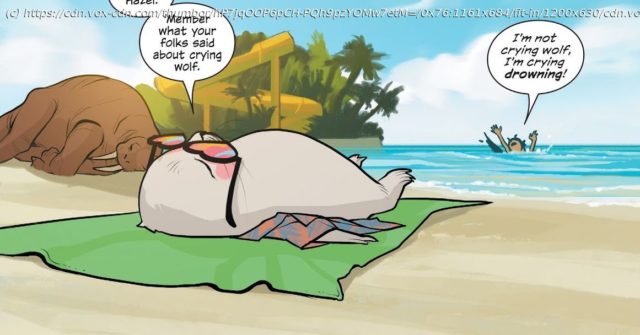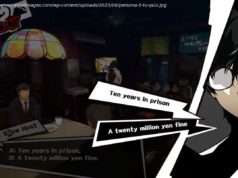Looking for some vacation books? How about some vacation comic books: Marvel superheroes, queer fantasy, nonfiction, memoir, and more.
It’s beach season, and you know what that means: Beach reads. But here at Polygon, we have a suggestion: What if, instead of finally reading That One Novel on your vacation, you did something way cooler?
What if you read That One Graphic Novel?
Polygon staffers Susana Polo and Tasha Robinson have put our heads together to distill the essential categories of the Summer Beach Read — and then convert them to equally stimulating, escapist, or aspirational comic books. So don’t bring a big ol’ book out onto the sand this year; bring a big ol’ comic!
And if you have other ideas for comic book beach reads, let us know in the comments!That nonfiction thing you’ve been meaning to readHidden Systems
By Dan Nott
The fundamental idea behind the nonfiction graphic novel Hidden Systems is that we’re all surrounded by and dependent on networks that we don’t understand, and maybe we’d all feel a little more connected to the world if we knew more about it. The book’s full title, Hidden Systems: Water, Electricity, the Internet, and the Secrets Behind the Systems We Use Every Day tells the full story: This is the Understanding Comics of network technology, and it uses simple, clear language and panel-based illustrations to walk readers through how the named networks were developed and how they function today. It’s easy to grasp, but written for adults, and guaranteed to make you come away with some interesting and highly relevant trivia you can pull out at the next summer barbeque. —Tasha RobinsonUnderstanding Comics: The Invisible Art
By Scott McCloud
Speaking of Understanding Comics, it’s coming up on its 30-year anniversary, and it’s still as relevant as ever. It was revelatory when Scott McCloud first published it — a funny, breezy, but insightful walkthrough of the language of comics symbolism, comics panels, and the language of visual storytelling — but now it’s just required reading. It’s the easiest education you’ll ever lay hands on, but it’s also a lot of fun. Just be warned that it’ll make you look at every comics page differently. —TRThat memoir everyone’s been talking aboutDucks: Two Years in the Oil Sands
By Kate Beaton
When Canadian cartoonist Kate Beaton stopped posting her intermittent web comic Hark! A Vagrant, certain sections of the internet mourned — the ones that appreciated never knowing whether they were going to get a fraught pirate love story or an offbeat Canadian history lesson. As it turned out, Beaton was working on a massive autobiographical comic about the two years she spent working at remote oil companies, a young woman surrounded by men whose behavior ranged from predatory and harassing to polite, friendly, and ultimately boundary-pushing.
Part analysis of Beaton’s own complicity in working for environmentally destructive companies in order to pay off her student loans, part analysis of gender relations, part observation of the transition between young adulthood and adulthood, and part trauma memoir, Ducks is so closely observed and focused on the trivial day-to-day that the dark humor and the bigger themes both slip in surreptitiously, building up to a series of poignant, powerful moments. It’s a hypnotic book, almost lulling until the startling bigger picture comes into focus. —TR That classic you’ve always meant to readWatchmen
By Alan Moore, Dave Gibbons, and John Higgins
It’s summer, and you know what that means: convincing yourself you have the time to read that influential, historically vital classic of the canon that you’ve somehow missed all these years. Exactly what that classic is is highly individual. Maybe for you it’s The Dark Knight Returns, or Love & Rockets, or Akira, or A Contract With God. But just for the sake of picking one, I’m going to go with Watchmen.
Written by Alan Moore, drawn by Dave Gibbons, and colored by John Higgins, Watchmen arrived at an incredibly pivotal moment in American comics, sitting at the nexus point in an absurd number of 1980s comic book trends, from the creation of Vertigo Comics and an influx of British creators to the U.S. market to the growing popularity of antiheroes and the first true era of successful graphic novels.
You probably know the story: In an alternate 1980s America shaped by the actions of two generations of costumed vigilantes (and one nigh-omnipotent super being known as Doctor Manhattan), a shadowy figure throws aging government agent/costumed vigilante the Comedian to his death.






